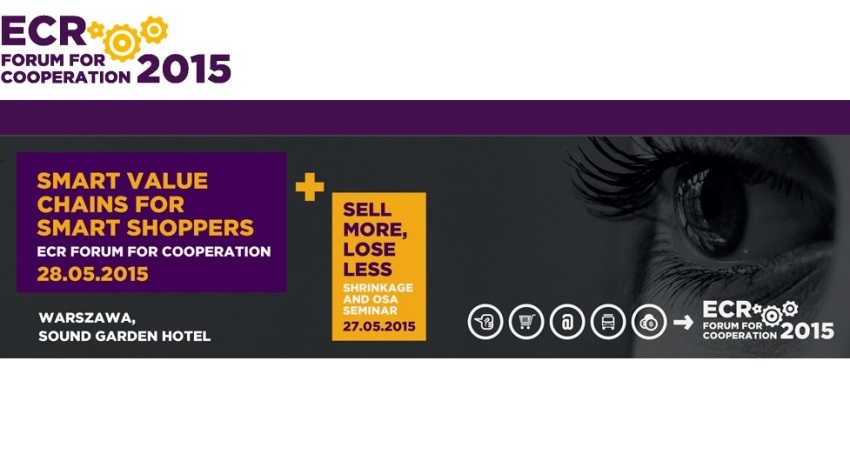Warsztat Sell MORE, Lose LESS
Jednodniowy, dynamiczny warsztat, podczas którego wykładowcy podzielą się nowym sposobem myślenia i podejściem do zapobiegania stratom! Podczas warsztatów poznasz skuteczne metody zwiększenia dostępności produktów na półce, a co za tym idzie – sprzedaży sklepu i zadowolenia klientów, przy jednoczesnym zmniejszeniu strat magazynowych wynikających z odpadów, kradzieży, uszkodzeń towaru lub błędów.
Założenia:
Słaba dostępność towarów na półce i straty magazynowe pozostają dwoma spośród najbardziej uporczywych problemów przemysłu FMCG. Nasz warsztat pozwoli Wam potraktować te problemy również jako okazję do usprawnień: Jeśli przeciętny sprzedawca zmniejszy swoje straty zaledwie o 25%, jego zysk może wzrosnąć o 30%. Dla wielu sprzedawców niewiele jest innych możliwości osiągnięcia tak dużego wzrostu!
15 lat współpracy i badań prowadzonych przez grupę roboczą ds. Shrinkage and On Shelf Availability przy ECR Europe, dostarczyło branży wiele nowych i ciekawych informacji na ten temat, pozwoliło opracować narzędzia i techniki, które przyniosły ponad 1,5 mld € oszczędności tym sprzedawcom i producentom, którzy zastosowali nowe podejście ECR do zapobiegania stratom.
Aby propagować wyniki prac grupy, a także zwiększyć świadomość na temat możliwych usprawnień, ECR Europpe Shrinkage and OSA Working Group prowadzi warsztaty w całej Europie, współpracując z lokalnymi, krajowymi organizacjami ECR.
W Polsce warsztaty Sell MORE Loese LESS odbędą się w ramach Forum ECR, poprzedzając coroczną konferencję ECR Forum for Cooperation, 27 maja 2015 roku.
UWAGA: Seminarium prowadzone jest w języku angielskim!
Warsztat Sell MORE, Lose LESS 2015 program
Overview: This is an ECR Europe Shrinkage & On-shelf Availability Group & ECR Polska event for business leaders responsible for buying, category management, store operations, loss prevention, supply chain and security functions of Polish retailers and their respective suppliers. In the morning, Professor Beck will introduce the Total Loss concept – a radical new way in which to understand how losses erode profitability in retailing. This will be followed by Mr Peacock who will share lessons from ECR case studies on Selling More & Losing Less – a highly successful business model that has delivered € billions in savings and increased sales for European retailers. In the afternoon, Mr Fonteijn will share lessons from the real world of retailing and how Ahold have applied the ECR lessons to great effect. Finally, the workshop will end with an interactive exercise, where delegates will have the opportunity to understand how the ECR Shrinkage Reduction Road Map can be used to identify the underlying causes of malicious and non-malicious losses in their businesses.
Introductions & Expectations for the Day – John Fonteijn/Colin Peacock
Introducing the Total Loss Concept – Professor Adrian Beck, University of Leicester, UK
Traditional definitions of loss in retailing typically only capture a relatively small proportion of the actual losses that are experienced by companies – they are narrowly focussed, mainly upon incidents of external theft. The Total Loss concept takes as its starting point that everything that is not defined as an actual ‘cost of doing business’, is a loss and should be managed accordingly. This session will offer delegates a unique and challenging insight into a rapidly developing area that is regarded by many as how retail losses will be understood and managed in the future.
Sell More & Lose Less – Colin Peacock, ECR Europe Shrinkage and On-shelf Availability Group
What is the right shrink number? Is it always best to aim for zero shrinkage? Does all loss prevention have to be about sales prevention? How do the merchants and the stores reach agreement on the right trade-off between waste and shrink Vs lost sales and poor availability? This session will explore, using a series of case studies, how ECR members have been able to work collaboratively to find the profit ‘sweet spot’ to optimise shrink and product availability.
Lessons from the Shop Floor – what do we know so far? – John Fonteijn, Chair of ECR Europe Shrinkage and OSA Group and Head of Group Asset Protection, Ahold
Ahold have taken advantage of the best practices developed by the ECR Europe Shrinkage and OSA Group, delivering significant savings and profit improvement, particularly through collaboration, both internally and with a wide range of external suppliers. Mr Fonteijn will share the key lessons to ensure successful company-wide engagement with the issues of shrinkage management and profit improvement. He will also give insights into how a company can get started on the journey to lower shrink and improved on-shelf availability.
14:15 Getting to Grips with the ECR Europe Shrinkage Reduction Road Map – Professor Adrian Beck
This interactive session will introduce the tools and techniques of the ECR Europe Shrinkage Reduction Road Map, a structured problem solving approach consisting of seven steps: call to action; planning; mapping and measuring; analysis; developing and testing solutions; solution deployment; and reviewing and documenting learnings. Delegates will get an overview of each step and learn how to use each of the specific tools and techniques, including: stakeholder analysis, process mapping, Failure Mode Effects Analysis (FMEA), brainstorming etc. Each table of delegates will be asked to focus on a specific product that is considered to be at risk from shrinkage. At the end of the session participants will be able to go back to their businesses and try out their newly developed skills to better understand and manage their shrinkage issues.
Best Practice from Polish market – case study presentation.

